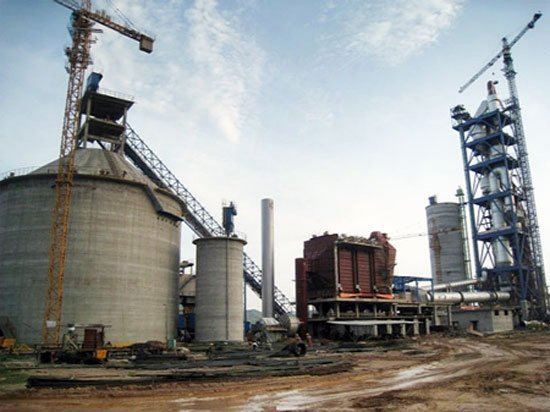VietNamNet Bridge - Ministries have been increasingly hearing calls for help from many industries.

In late July 2017, the Ministry of Planning & Investment (MPI) proposed reducing an export tariff to rescue the cement industry. The domestic supply is 20 percent higher than demand, while the domestically made product is more expensive than Chinese, Thai and Japanese cement.
The ministry believed that it would be better to slash the export tariff to below 5 percent to pave the way for cement manufacturers to export their products and ease the pressure on domestic supply.
|
In late July 2017, the Ministry of Planning & Investment (MPI) proposed reducing an export tariff to rescue the cement industry. The domestic supply is 20 percent higher than demand, while the domestically made product is more expensive than Chinese, Thai and Japanese cement. |
Prior to that, Vinacomin proposed an export tariff cut and environmental protection tax reduction to help boost coal exports. Vinacomin leaders warned that thousands of jobs at Vinacomin depended on its production and business results.
An analyst noted that shouting for help from the government has become a habit of state-owned enterprises and ministries. If their products don’t sell well, they seek the government’s help instead of trying to think of solutions.
Cement and coal mining consume natural resources and energy, and have a negative impact on the environment.
If the government tries to save the industries by cutting taxes, for example, it would help reduce inventory levels and ensure jobs for thousands of workers. But it won’t be able to settle the root of the problems, which are outdated technology and low productivity, which lead to high production costs.
The analyst said that even if the government saves the industry, the economy will have to pay a heavy price.
The tax cut to save industries will give the wrong signal about demand and supply and distort the market.
In the cement industry, for example, the ease of export tariffs would help reduce the stocks, but the reduction in inventory will not mean that enterprises would cut output.
Some enterprises may try to produce and export more during the time when they enjoy preferential tariffs. When the time ends, the slow sales will return because enterprises cannot apply measures to reduce production costs.
As for the natural-resource and energy-consuming industries, the encouragement of exports means more energy consumption and exploitation of natural resources, which will affect the environment.
The analyst noted that ministries seem to be unable to find a common voice in saving industries. Just several days after MOF rejected a proposal on tax reduction to rescue Vinacomin, MPI made a similar proposal to rescue cement manufacturers.
“In a market economy, enterprises must plan their business and take responsibility for their decisions, and must not rely on protection from the state,” he said.
RELATED NEWS
Vietnam warned about cement oversupply, narrower export markets
Foreign businesses eyeing domestic cement
Luong Bang